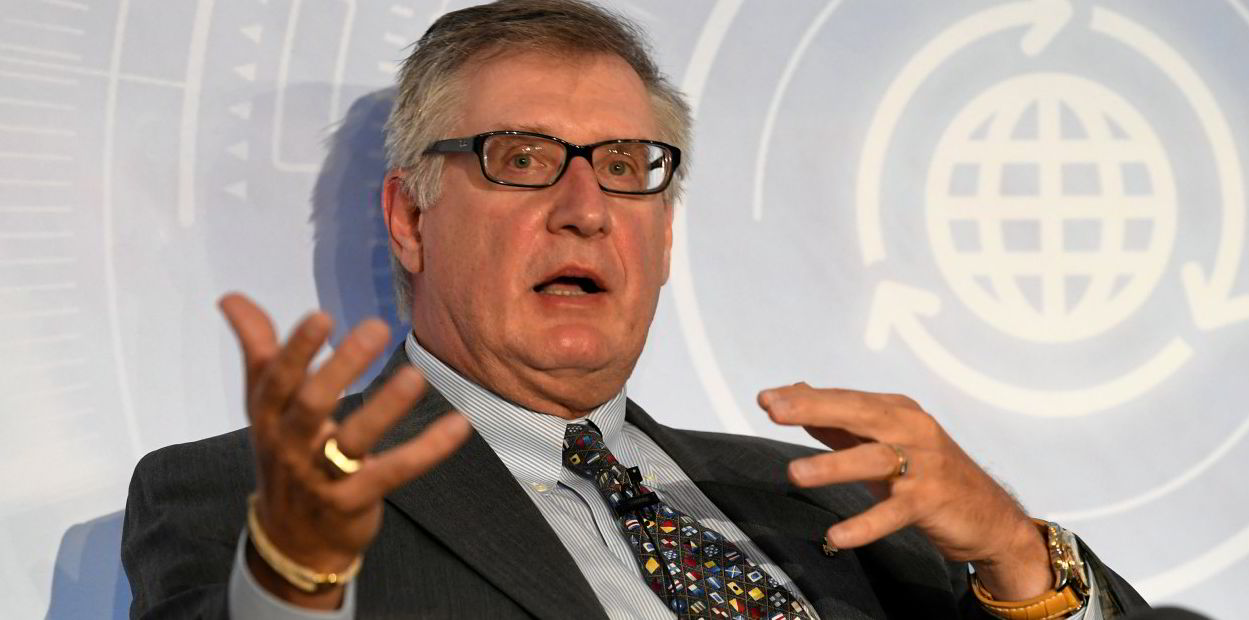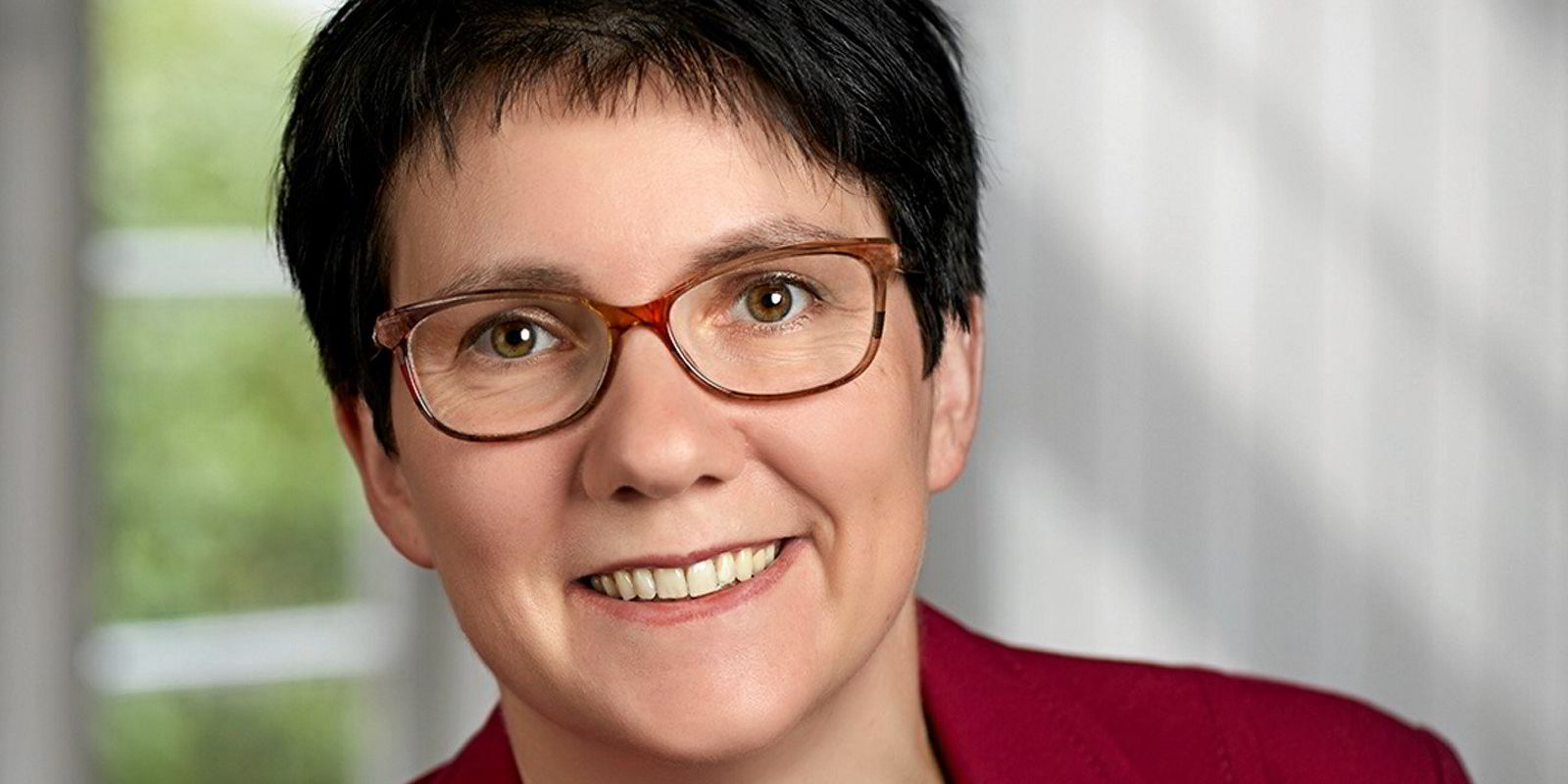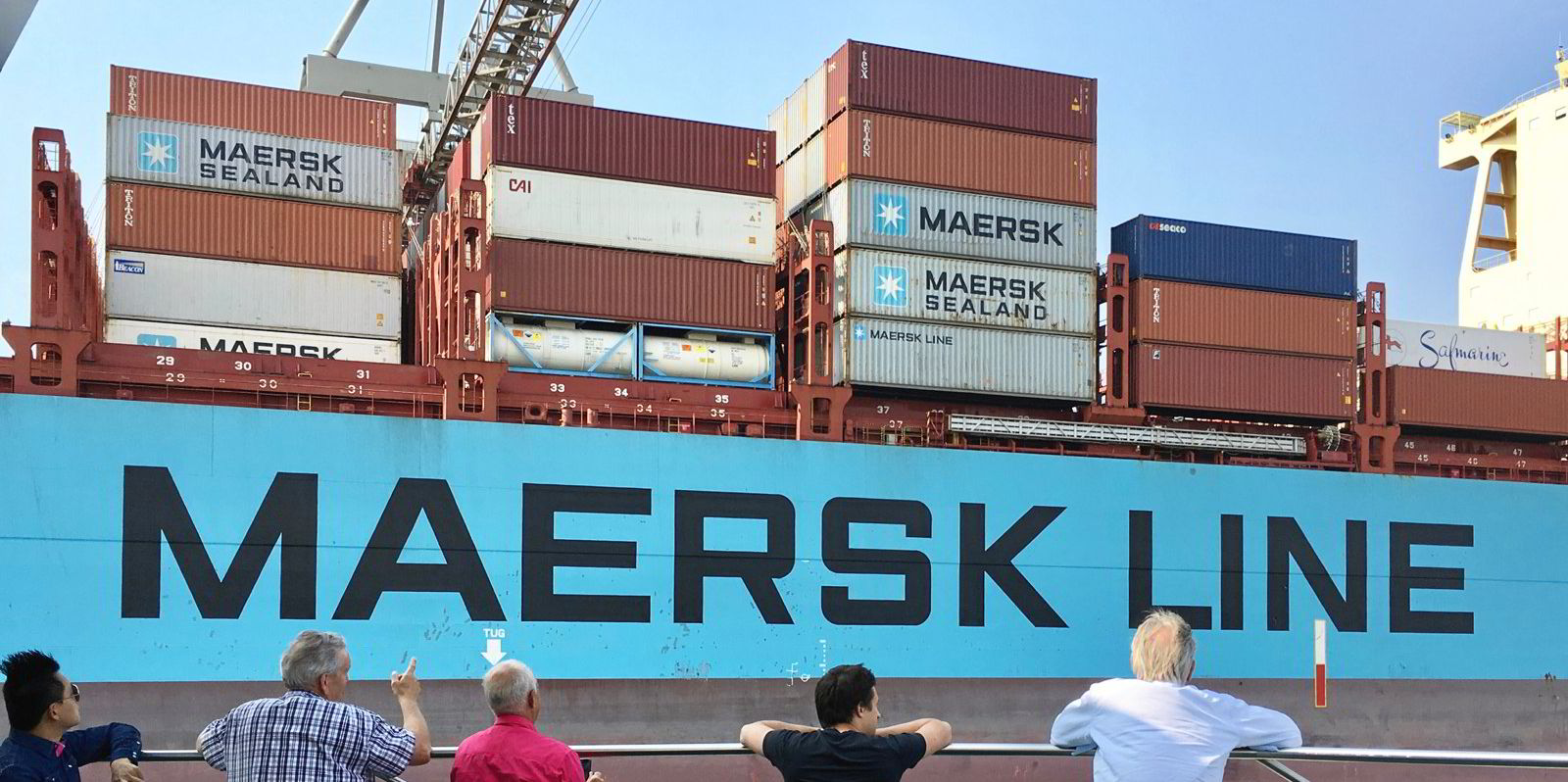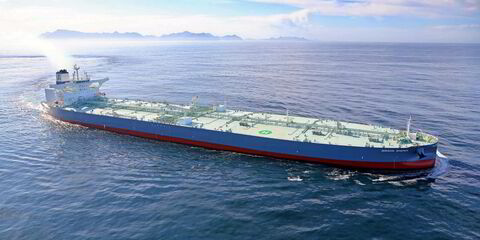ABS is to class Maersk’s groundbreaking series of 16,000-teu methanol-fuelled containerships recently ordered at Hyundai Heavy Industries.
The US classification society is already responsible for the classification of Maersk’s 2,100-teu dual-fuel feeder containership on order at South Korea’s Hyundai Mipo Dockyard.
“Sustainable global trade is an urgent priority not just for our industry, but the entire world and this landmark project starts to make this dream a reality,” said ABS chairman Christopher J Wiernicki.
“As a leader in the application of sustainable fuels in shipping, ABS is proud to be able to use our experience to support it.”
Maersk has ordered eight of the vessels with options for a further four, which on delivery in 2024, will be capable of operating on carbon-neutral methanol.
Wiernicki said methanol-fuelled vessels will play a “significant role” in reaching an industry commitment of 60% CO2 fleet reduction by 2030 compared with 2008 levels.
AP Moller-Maersk chief technical officer Palle Laursen said methanol-fuelled vessels will also be a “proving ground” where the industry learns how to bunker and operate carbon-neutral vessels safely, efficiently and reliably.
Dual-fuel set-up
The vessels come with a dual-fuel engine set-up, which enables operation on methanol as well as conventional low-sulphur fuel. The additional capital expenditure for this capability will account for 10% to 15% of the total newbuilding price.
The methanol propulsion configuration is being developed in collaboration with MAN ES, Hyundai (Himsen) and Alfa Laval and represents a significant scale-up of the technology from the previous size limit of about 2,000 teu.
The vessels will replace older tonnage, generating annual CO2 emissions savings of about 1m tonnes and offer customers carbon-neutral transportation at scale.
In February, ABS published guidance on methanol as marine fuel, evaluating the challenges in design and operation of methanol-fuelled vessels.
“Due to its potential to reduce the CO2 footprint of marine operations, applications of methanol are drawing a wider interest from owners,” Georgios Plevrakis, ABS director, global sustainability, said at the time.
“While methanol’s uptake and application as a marine fuel is only beginning, ABS is committed to ensuring owners, operators, shipbuilders and original equipment manufacturers are fully informed about its potential as they develop their decarbonisation strategies.”
The class society is also participating in a study led by the Maersk Mc-Kinney Moller Center for Zero Carbon Shipping to assess the technical, financial and environmental potential of converting existing vessels to zero-carbon fuels and technology.





